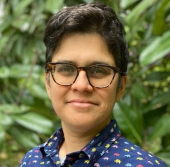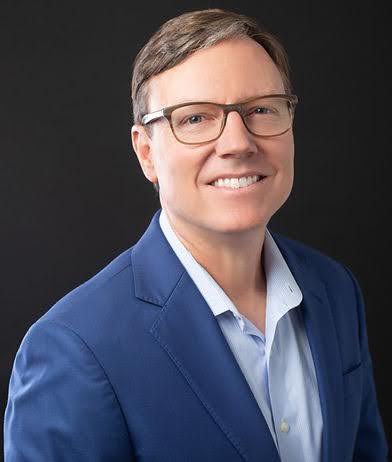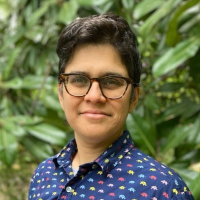Human Capital Development: Aligning Compensation to Strategy and Vision
Join Us Virtually
Event Details
 This intensive, six-week program is designed to help independent school leadership teams begin to develop a comprehensive and strategic approach to human capital development.
This intensive, six-week program is designed to help independent school leadership teams begin to develop a comprehensive and strategic approach to human capital development.From a foundation of clear values and vision and an assessment of current realities, leaders will explore how different compensation strategies might align with
larger school-wide goals of
 recruiting, retaining, and growing a diverse and talented staff, advancing workforce equity and employee thriving, and ensuring both strategic advancement and organizational sustainability.
recruiting, retaining, and growing a diverse and talented staff, advancing workforce equity and employee thriving, and ensuring both strategic advancement and organizational sustainability. - Clarity of Purpose: Clearly articulate with their team the key strategies and priorities that are driving their school at this moment, and leverage that shared clarity of purpose in analyzing and aligning the systems toward the highest priorities.
- Problem Statement & Generative Response: Articulate the driving goals (e.g. equity audit of current compensation and/or performance management system; development of school-wide compensation strategy; improved recruitment, retention, and development practices with a focus on BIPOC faculty; etc.) and use a design-thinking approach to generate and evaluate possibilities.
- Context: Identify and understand various models and approaches across schools with regards to compensation and human capital development.
- Systems Mapping: Assess the system resources, pressures, and pathways that lead to possible solutions.
- Solutions Development: Propose and support one or more viable strategies to address the problem statement(s).
- Proposal: Clearly and effectively communicate the proposed solution to a board trustee or committee.
|
Session I: Setting the Stage - Views from the Balcony and the Dance Floor
During our first session, we will provide an overview of what leadership teams can expect to experience and accomplish during this mini-course. Will will introduce processes and associated resources we will leverage across the 6 sessions, and highlight the different ways teams might tailor their approach to the culminating deliverable. As a way for teams to begin the work of focusing their thinking, and as a way for each school to introduce themselves to the other school teams, each team will spend time articulating a set of mission-anchored values, beliefs, and aspirations that are presently at the heart of their school community. Session II: Identifying Core Challenges - Framing the Issue
During this session, each leadership team will discuss the core human capital challenge facing their school community. These challenges can range from limitations of their current human capital development systems (professional development, faculty and staff evaluation, performance management, compensation, etc.) to mounting external pressures to recruit and retain a mission-aligned workforce. To support teams in the distillation of a core problem statement, we will discuss ways of framing issues (as technical or adaptive challenges), and explore a 6-step process for addressing organizational dilemmas. Session III: Contending with Core Challenges - Imagining Possibilities During this session, leadership teams will leverage design thinking to explore options and opportunities for addressing the core challenge they have identified. Once a set of possible solutions has been generated, resources will be provided to help teams assess which ones to prioritize for further consideration and potential application. Session IV: Systems Mapping Part 1 During this session, leadership teams will use a systems thinking resource to map out a comprehensive set of considerations for implementing one of their priority solutions for contending with their core challenge. In pairs, leadership teams will share feedback and ideas with each other on their draft systems map. Drawing on these insights and ideas, teams will refine their draft systems map, and generate a second map for another potential priority solution. Session V: Systems Mapping Part 2 and Intro to Pitch Process To begin this session, leadership teams will share their two revised systems maps with a partner school for feedback and additional idea generation. Next, we will provide a “pitch deck” template for teams to clearly and effectively communicate the story of their work to date, and articulate ways their school community might move this work forward in the weeks ahead. Session VI: Pitch Practice and the Path Ahead During this session, each leadership team will present their “pitch deck” to the other school teams and will receive feedback and ideas for refining their pitch. This session will also provide an opportunity for participants to reflect on this team-based design thinking process for addressing human capital challenges, and consider what will need to be true to move this work forward optimally in the next 30, 60, and 90 days. |
 Patrick Schuermann is one of the nation’s leading experts in educator compensation. Following a career spanning elementary, middle and high school teaching, tutoring, coaching and leading in both independent and public schools, Patrick’s doctoral dissertation at Vanderbilt University,
Patrick Schuermann is one of the nation’s leading experts in educator compensation. Following a career spanning elementary, middle and high school teaching, tutoring, coaching and leading in both independent and public schools, Patrick’s doctoral dissertation at Vanderbilt University,“An Integrated Approach to Professional Development, Faculty Evaluation, and Compensation: Resources for Independent School Leaders”, allowed him to visit independent school campuses across the country to explore how schools were seeking to creatively cultivate mission-aligned human capital.
Following its completion in 2006, Patrick served as the founding Director of Technical Assistance for the U.S. Department of Education’s National Center for Educator Compensation Reform that oversaw the federally funded Teacher Incentive Fund program. In this capacity, Patrick worked with a talented team of multidisciplinary experts to provide support to some of our nation’s largest and most complex school districts (such as New York City, Chicago, Los Angeles, Houston and Miami), an array of rural districts, charter schools, and State departments of Education with the design, implementation and impact evaluation of their innovative compensation systems for educators and school leaders. During this time, Patrick and the research team published multiple guidebooks and research reports to support innovative compensation system design. In his role as the Director of Policy for the Center, and with the support of the Aspen Institute, Patrick worked with a team of content experts to support members of the House and Senate Committees crafting our country’s policy agenda around compensation reform. Concurrently, with support from the Gates Foundation, Patrick led a team of education and technology experts in the development of multimedia resources to help district and school leadership teams navigate the work of compensation system innovation.
 Over two decades as an independent school educator and academic leader, Meera Shah has overseen the professional growth of faculty at the department and all-school level, run leadership teams, and shepherded curricular and programmatic change in schools. Meera founded Trey Education to help independent school leaders move their faculty and programs forward.
Over two decades as an independent school educator and academic leader, Meera Shah has overseen the professional growth of faculty at the department and all-school level, run leadership teams, and shepherded curricular and programmatic change in schools. Meera founded Trey Education to help independent school leaders move their faculty and programs forward.As a consultant, she's provided one-on-one thought partnership and mentorship for academic leaders, facilitated custom all-school leadership development programming for department chairs, coached teachers and developed teacher mentorship programs, facilitated team retreats, partnered with regional associations for professional learning, supported schools and leaders with program visioning and development, optimized schedules, conducted senior administrative searches; and more. In short, Meera provides strategic school leaders with added capacity, expertise, and third-party perspectives and facilitation.
Meera partners with schools and leaders with the belief that change, growth, and empowerment are intertwined, and thus prioritizes authentic relationships, responsive design, and collaboration in her work.
Trained in Biomedical Engineering (Sc.B., Brown University), Meera quickly realized she was more excited about having an impact in the classroom than at the lab bench and began her career in independent schools–and hasn’t looked back since, having been a community member and educator at boarding, day, co-ed, single-gender, 6-12, pK-12 schools, face-to-face, and online schools.
After a decade of wearing all the typical independent school hats (teacher, advisor, coach, grade dean, on-campus faculty, etc.) at Dana Hall School (MA), she studied Learning & Teaching with a focus on leadership (Ed.M., Harvard Graduate School of Education), subsequently serving as a department head at Beaver Country Day School (MA). Meera brought her passion for faculty development and administrative leadership south to serve as the academic dean and then associate head for teaching and learning at Carolina Day School (NC). Afterward, as the director of studies at One Schoolhouse (DC), Meera discovered her excitement for working with–and in service to–a variety of schools, which led her to found Trey Education. She also supports schools with senior administrative searches in partnership with Educational Directions.
Meera lives in Asheville (NC) with her wife and two kids (twins!), and enjoys spending time with her family.
EVENT CONTACT
Dena Torino, Director of Programming
We are pleased to present this program in collaboration with
MISBO and TAIS.
WHEN | WHERE
Sept. 10, Sept. 17, Sept. 24, Oct. 1, Oct. 8, Oct. 15, 2024
Act 48 Credits Available
• You may request credit up to 7 days after the event.
• Per the PA Department of Education, ADVIS is required to report your successful completion of Act 48 evaluation within 30 days of the event.
• Contact Candyce Wilson for more information.
PROGRAM FEES
ADVIS Member Schools
This ticket is for a team consisting of
1- 3 members from the same school.
This ticket is for a team consisting of
4-5 members from the same school.
Non-Member Schools
• Team of 1-3 people - $1,800
This ticket is for a team consisting of
1- 3 members from the same school.
• Team of 4-5 people - $2,100
This ticket is for a team consisting of
4-5 members from the same school.
Not sure if your school is a Member?
Check our list of ADVIS Member Schools.
ACCESSIBILITY
We strive to host inclusive, accessible events that enable all individuals, including individuals with disabilities, to engage fully. Please feel free to request an accommodation on the registration form. For inquiries about accessibility, please contact Membership and Outreach Manager Candyce Wilson. At least two weeks' advance notice will help us to provide seamless access.

